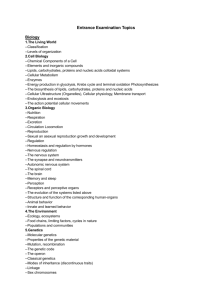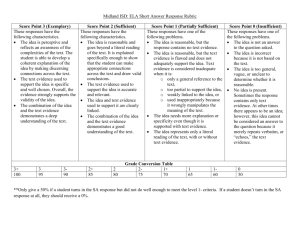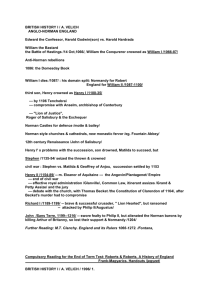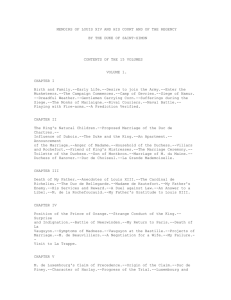Rubric - Loch Raven High
advertisement
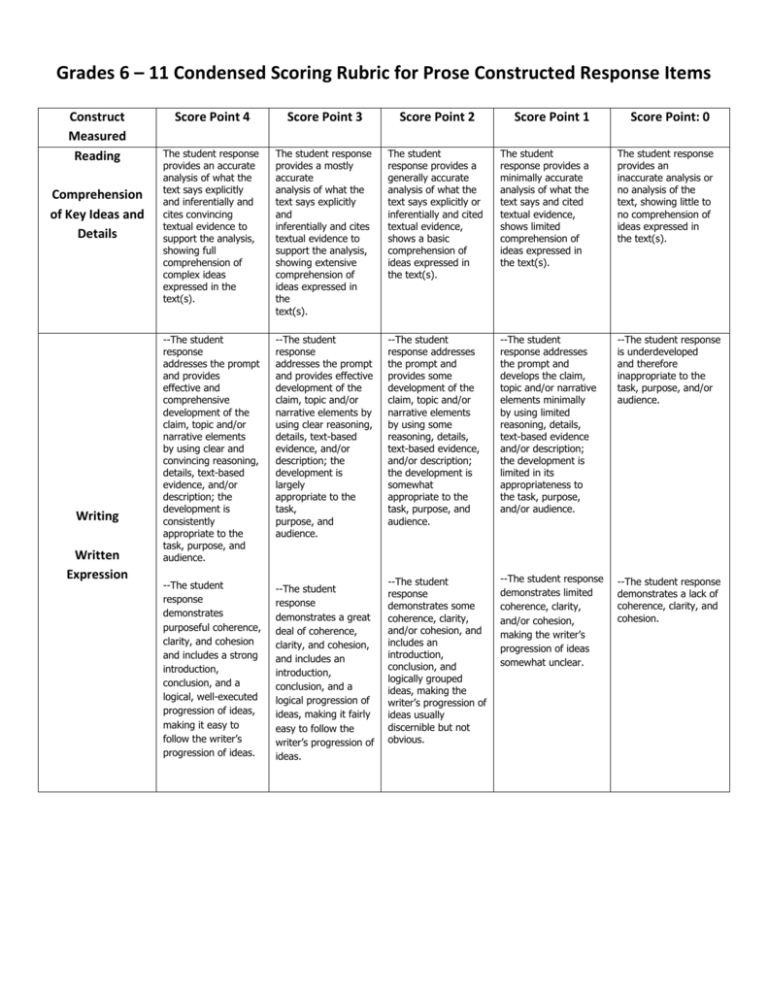
Grades 6 – 11 Condensed Scoring Rubric for Prose Constructed Response Items Construct Measured Reading Comprehension of Key Ideas and Details Writing Written Expression Score Point 4 Score Point 3 Score Point 2 Score Point 1 Score Point: 0 The student response provides an accurate analysis of what the text says explicitly and inferentially and cites convincing textual evidence to support the analysis, showing full comprehension of complex ideas expressed in the text(s). The student response provides a mostly accurate analysis of what the text says explicitly and inferentially and cites textual evidence to support the analysis, showing extensive comprehension of ideas expressed in the text(s). The student response provides a generally accurate analysis of what the text says explicitly or inferentially and cited textual evidence, shows a basic comprehension of ideas expressed in the text(s). The student response provides a minimally accurate analysis of what the text says and cited textual evidence, shows limited comprehension of ideas expressed in the text(s). The student response provides an inaccurate analysis or no analysis of the text, showing little to no comprehension of ideas expressed in the text(s). --The student response addresses the prompt and provides effective and comprehensive development of the claim, topic and/or narrative elements by using clear and convincing reasoning, details, text-based evidence, and/or description; the development is consistently appropriate to the task, purpose, and audience. --The student response addresses the prompt and provides effective development of the claim, topic and/or narrative elements by using clear reasoning, details, text-based evidence, and/or description; the development is largely appropriate to the task, purpose, and audience. --The student response addresses the prompt and provides some development of the claim, topic and/or narrative elements by using some reasoning, details, text-based evidence, and/or description; the development is somewhat appropriate to the task, purpose, and audience. --The student response addresses the prompt and develops the claim, topic and/or narrative elements minimally by using limited reasoning, details, text-based evidence and/or description; the development is limited in its appropriateness to the task, purpose, and/or audience. --The student response is underdeveloped and therefore inappropriate to the task, purpose, and/or audience. --The student response demonstrates purposeful coherence, clarity, and cohesion and includes a strong introduction, conclusion, and a logical, well-executed progression of ideas, making it easy to follow the writer’s progression of ideas. --The student response demonstrates a great deal of coherence, clarity, and cohesion, and includes an introduction, conclusion, and a logical progression of ideas, making it fairly easy to follow the writer’s progression of ideas. --The student response demonstrates some coherence, clarity, and/or cohesion, and includes an introduction, conclusion, and logically grouped ideas, making the writer’s progression of ideas usually discernible but not obvious. --The student response demonstrates limited coherence, clarity, and/or cohesion, making the writer’s progression of ideas somewhat unclear. --The student response demonstrates a lack of coherence, clarity, and cohesion. Grades 6 – 11 Condensed Scoring Rubric for Prose Constructed Response Items Construct Measured Writing Written Expression (continued) Writing Knowledge of Language and Conventions Score Point 4 Score Point 3 Score Point 2 Score Point 1 Score Point 0 --The student response establishes and maintains an effective style, while attending to the norms and conventions of the discipline. The response uses precise language consistently, including descriptive words and phrases, sensory details, linking and transitional words, words to indicate tone, and/or domainspecific vocabulary. --The student response establishes and maintains an effective style, while attending to the norms and conventions of the discipline. The response uses mostly precise language, including descriptive words and phrases, sensory details, linking and transitional words, words to indicate tone, and/or domainspecific vocabulary. --The student response establishes and maintains a mostly effective style, while attending to the norms and conventions of the discipline. The response uses some precise language, including descriptive words and phrases, sensory details, linking and transitional words, words to indicate tone and/or domainspecific vocabulary. --The student response has a style that has limited effectiveness, with limited awareness of the norms of the discipline. The response includes limited descriptions, sensory details, linking or transitional words, words to indicate tone, or domain-specific vocabulary. --The student response has an inappropriate style. The student writing shows little to no awareness of the norms of the discipline. The response includes little to no precise language. The student response demonstrates command of the conventions of standard English consistent with effectively edited writing. Though there may be a few minor errors in grammar and usage, meaning is clear throughout the response. The student response demonstrates command of the conventions of standard English consistent with edited writing. There may be a few distracting errors in grammar and usage, but meaning is clear. The student response demonstrates inconsistent command of the conventions of standard English. There are a few patterns of errors in grammar and usage that may occasionally impede understanding. The student response demonstrates limited command of the conventions of standard English. There are multiple errors in grammar and usage demonstrating minimal control over language. There are multiple distracting errors in grammar and usage that sometimes impede understanding. The student response demonstrates little to no command of the conventions of standard English. There are frequent and varied errors in grammar and usage, demonstrating little or no control over language. There are frequent distracting errors in grammar and usage that often impede understanding. NOTE: The reading dimension is not scored for elicited narrative stories. The elements of coherence, clarity, and cohesion to be assessed are expressed in grade-level standards 1-4 for writing and elucidated in the scoring guide for each PCR. Tone is not assessed in grade 6. Per the CCSS, narrative elements in grades 3-5 may include: establishing a situation, organizing a logical event sequence, describing scenes, objects or people, developing characters personalities, and using dialogue as appropriate. In grades 6-8, narrative elements may include, in addition to the grades 3-5 elements, establishing a context, situating events in a time and place, developing a point of view, developing characters’ motives. In grades 9-11, narrative elements may include, in addition to the grades 3-8 elements, outlining step-by-step procedures, creating one or more points of view, and constructing event models of what happened. The elements to be assessed are expressed in grade-level standards 3 for writing and elucidated in the scoring guide for each PCR. Coded Responses: (All coded responses are scored with a 0 on the rubric.) A= No response B=Response is unintelligible or undecipherable C=Response is not written in English D=Response is too limited to evaluate Note-additional codes may be added after the tryout or piloting of tasks
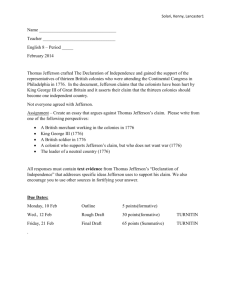
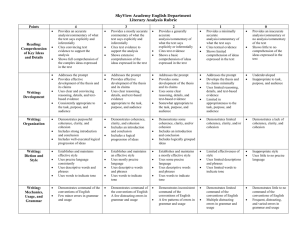
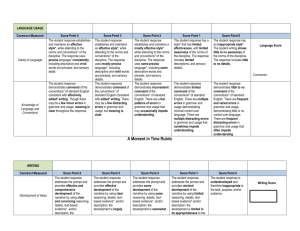
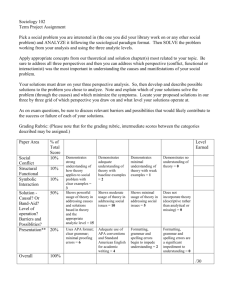
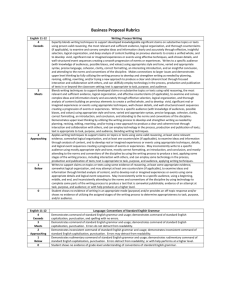
![Published Twitter Memoir Rubric [1/27/2016]](http://s3.studylib.net/store/data/006726408_1-b868f5b19d87f53393c6e0d8910c2e43-300x300.png)
